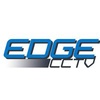In the world of surveillance, closed-circuit television (CCTV) cameras play a crucial role in monitoring and securing various environments. With advancements in technology, the choice between digital and analog CCTV cameras has become a significant consideration for businesses, homeowners, and security professionals. In this in-depth exploration, we'll delve into the differences between digital and analog CCTV cameras, comparing their features, benefits, and drawbacks to determine which is better suited for different surveillance needs.
Understanding Analog CCTV Cameras
Analog CCTV cameras have been the traditional choice for surveillance systems for many years. These cameras capture video footage in analog format, which is then transmitted through coaxial cables to a Digital Video Recorder (DVR) for storage and viewing. Here are some key characteristics of analog CCTV cameras:
-
Resolution: Analog cameras typically have lower resolution compared to their digital counterparts. Standard analog cameras usually offer resolutions of 420 TV lines to 700 TV lines, resulting in lower image clarity and detail.
-
Compatibility: Analog CCTV cameras are compatible with existing coaxial cable infrastructure, making them relatively easy to install in systems that already use analog technology. However, this compatibility can limit the potential for high-definition video.
-
Cost: Analog CCTV cameras are generally more affordable upfront compared to digital cameras. The cameras themselves are cheaper, and since they use existing infrastructure, Security Camera Installation in Jacksonville costs are often lower as well.
-
Signal Quality: Analog signals are susceptible to degradation over long cable runs, resulting in decreased signal quality and potential interference. This can impact the clarity and reliability of the video feed, especially in large surveillance systems.
-
Limited Features: Analog cameras typically offer basic features such as motion detection and night vision, but they lack the advanced capabilities of digital cameras, such as remote access and intelligent analytics.

Exploring Digital CCTV Cameras
Digital CCTV cameras, also known as network cameras or IP cameras, have gained popularity in recent years due to their advanced features and improved image quality. These cameras capture video footage in digital format, which is transmitted over an IP network to a Network Video Recorder (NVR) for storage and viewing. Let's examine the key features of digital CCTV cameras:
-
Resolution: Digital cameras offer higher resolutions, ranging from 720p HD to 4K Ultra HD, resulting in clearer and more detailed images. This high resolution allows for better identification of subjects and finer details in the footage.
-
Flexibility: Digital CCTV cameras can be easily integrated into existing IP networks, offering greater flexibility in system design and scalability. They can also be installed wirelessly, eliminating the need for cumbersome coaxial cables.
-
Remote Access: One of the significant advantages of digital cameras is remote access. Users can view live or recorded footage from anywhere with an internet connection using a computer, smartphone, or tablet. This remote access feature is invaluable for monitoring properties while away from the premises.
-
Intelligent Analytics: Digital cameras often come equipped with advanced analytics capabilities, such as facial recognition, object tracking, and intrusion detection. These features enable more sophisticated surveillance and proactive security measures.
-
Cost: While digital CCTV cameras may have higher upfront costs compared to analog cameras, the total cost of ownership can be lower in the long run. This is due to their higher resolution, advanced features, and the potential for reduced maintenance and infrastructure costs.
Comparing the Two Technologies
Now that we've explored the features of analog and digital CCTV cameras, let's compare them across various categories to determine which is better suited for different surveillance needs:
-
Image Quality: Digital CCTV cameras clearly outperform analog cameras in terms of image quality. With higher resolutions and digital processing, digital cameras provide sharper, clearer, and more detailed footage, making them ideal for applications where image quality is paramount.
-
Installation and Infrastructure: Analog cameras have the advantage of compatibility with existing coaxial cable infrastructure, making them easier and cheaper to install in certain situations. However, digital cameras offer greater flexibility and scalability, especially in larger or more complex systems.
-
Remote Access and Monitoring: Digital cameras have a significant advantage in remote access and monitoring capabilities. The ability to view footage remotely via the internet allows for real-time monitoring and rapid response to security incidents, giving digital cameras the edge in this category.
-
Cost: While analog cameras are cheaper upfront, digital cameras offer better value in the long run due to their superior image quality, advanced features, and potential for reduced maintenance costs. The total cost of ownership should be considered when evaluating the cost-effectiveness of each technology.
-
Features and Functionality: Digital cameras offer a wide range of advanced features, including intelligent analytics, two-way audio, and remote pan-tilt-zoom (PTZ) control, which are not available with analog cameras. These features enhance the effectiveness and versatility of digital surveillance systems.
Conclusion
In conclusion, the choice between digital and analog CCTV cameras depends on various factors, including image quality, installation requirements, remote access capabilities, cost, and desired features. While analog cameras may still have a place in certain applications where cost is a primary concern and image quality requirements are lower, digital cameras offer superior performance, flexibility, and functionality for most modern surveillance needs.
For businesses and organizations that prioritize high-quality video surveillance, remote monitoring, and advanced features, digital CCTV cameras are the clear choice. In this context, Edge CCTV stands out as an excellent option, providing cutting-edge technology and comprehensive solutions for effective security monitoring. However, for smaller-scale applications with budget constraints or existing analog infrastructure, analog cameras may still be a viable option.


No comments yet